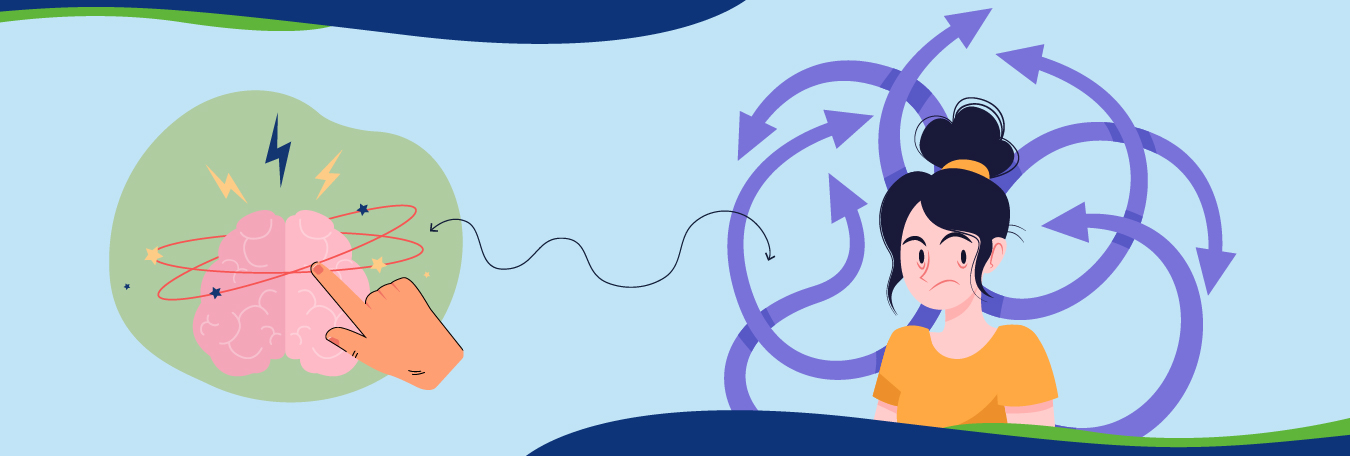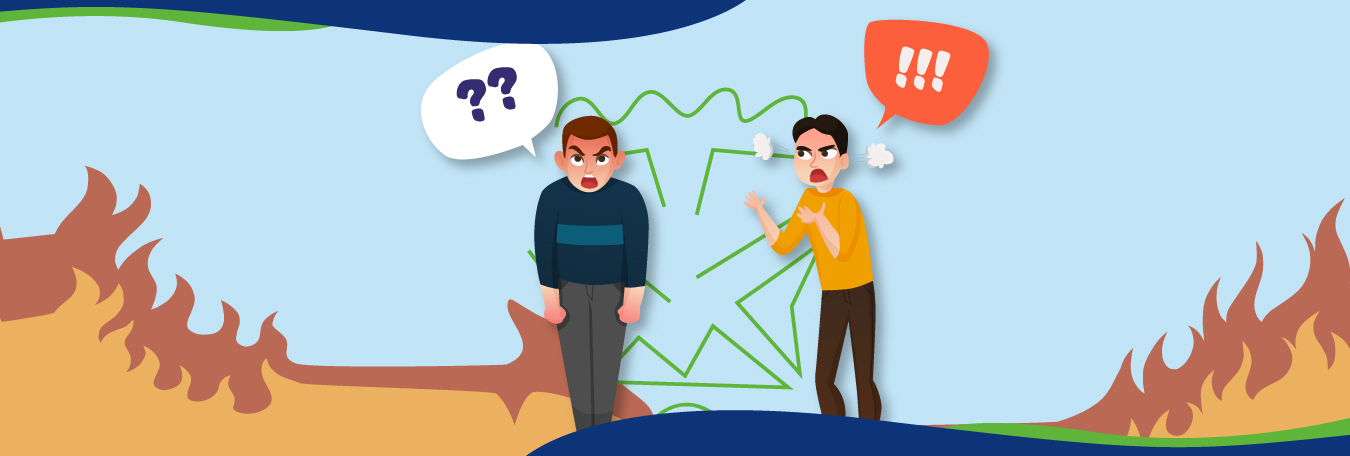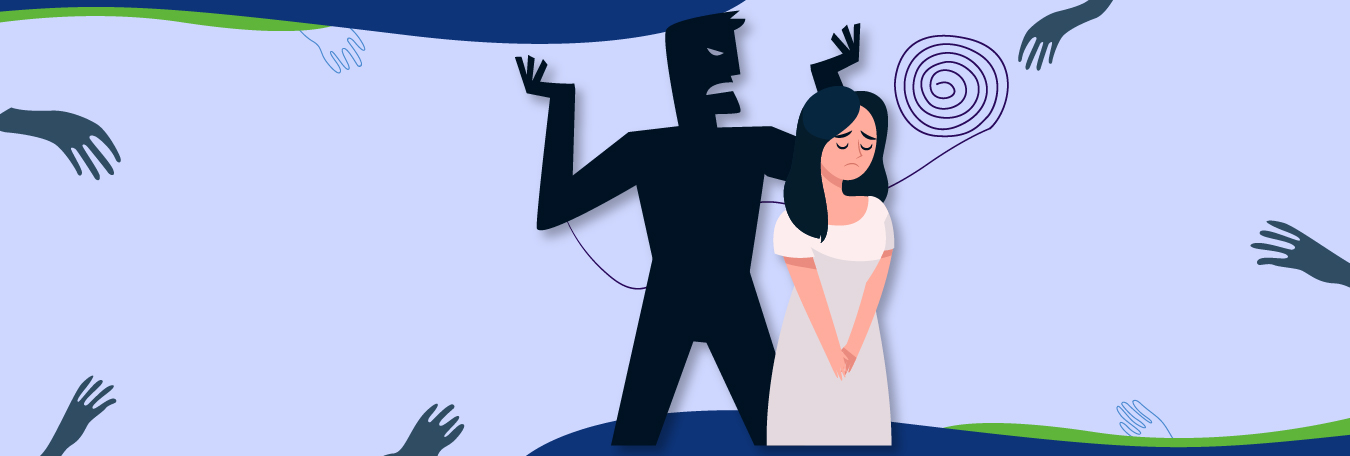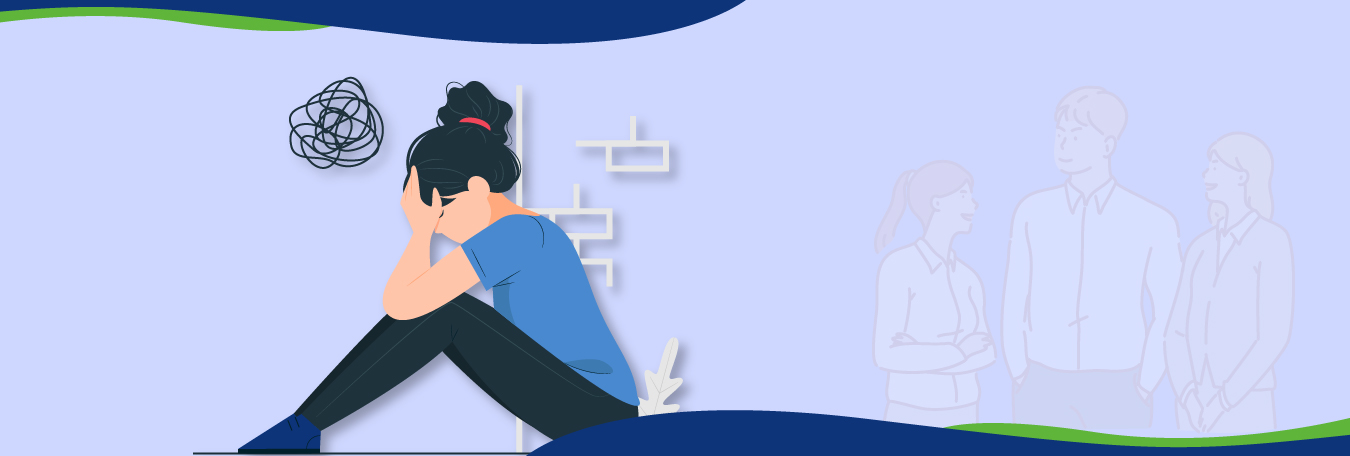Food and mood often go together. When taking a break from life, the first thought that comes to mind is to sit back and enjoy that time with good food. However, sometimes life can take a drastic turn, and you may feel depressed due to adverse changes in your life, which ultimately affects your eating habits.
This blog is a complete guide to understanding the central question linked with depression: “Can depression cause weight loss? And “Why does depression cause weight loss?”
What Is Depression?
Depression, also commonly known as major depressive disorder, is a common and severe mental health disorder that affects a person’s feelings, thinking, and the way they perceive the world. Additionally, it can severely affect significant areas of a person’s life, making them less functional.
The Common Signs Of Depression
The following common signs characterize depression:
- Extreme sadness
- Loss of interest in various activities
- Changes in eating patterns
- Changes in the sleep cycle
- Lowered energy
- Feelings of worthlessness
- Hopelessness
- Suicidal Ideation
- Slowed Movements
- Concentration Issues
Read More: ADHD and depression: Symptoms, Causes & Treatment
What Is The Connection Between Depression And Weight Loss?
Depression can affect a person both physically and mentally. Here are a few reasons why depression can make significant changes in a person’s weight.

Lowered appetite or loss of interest in food:
One of the common signs of depression is anhedonia. Anhedonia is a sudden lack of interest in activities that the sufferer once enjoyed to indulge in. In the majority of depressive people, this sign exhibits a loss of interest in food, which in turn makes them lose weight.
Gastrointestinal Signs:
Depression can be a significant source of gastrointestinal issues. The affected person can experience changes in their digestion and often feel upset stomach signs like nausea or abdominal pain. Additionally, these signs make it hard for them to consume food, resulting in weight loss.
Hormonal changes:
Since depression has a severe impact on the hormones of the affected person. It can also mess up the levels of other hormones, such as cortisol, a specific hormone that reacts to food cues and hunger pangs.
Increased Inflammatory Responses:
Depression has strong roots in causing inflammatory responses throughout a depressive person’s body. These inflammatory responses can affect the body’s functions, including appetite regulation, resulting in decreased or diminished appetite and weight loss.
Side effects of medicines:
If a depressive person is prescribed antidepressants, there is a higher possibility that the consumption of medication will affect their eating habits. Furthermore, some antidepressants like Wellbutrin are more potent and impact a person’s weight.
Comorbid Anxiety:
It is widespread for people suffering from depression to also suffer from an anxiety disorder. A rough estimate of at least 41 percent of people with major depressive disorder also experience anxiety disorder. Anxiety is also linked to significant loss of appetite.
Co-occurring eating disorders:
People with depression are at a higher risk of developing eating disorders. Anorexia nervosa and bulimia nervosa are the most commonly diagnosed eating disorders and can lead to noticeable loss of body weight.
Read More: Symptoms and Causes of Depression – How to Treat Them?
Is Weight Loss More Prevalent In Depression Than Weight Gain?
There is no such evidence found that weight loss is more common in depressive people as compared to weight gain, as both are signs of depression. Depression can affect people differently. Some may experience weight loss, and some may gain weight.
Many people find it hard to eat food during the depressive phase. They may lack interest in eating food and even cooking it. Some may start to overeat food as they find it to be a comforting coping mechanism. Moreover, the prevalence of weight gain or loss can depend on the subtype of depression and its severity. For instance, Atypical depression is usually linked with elevated food intake that results in weight gain, while melancholic depression is characterized by lowered food intake leading to weight loss.
What Are The Best Ways To Manage Depression-Related Weight Loss?
It is complex to manage weight loss associated with depression. However, it is not impossible. You can acquire a multifaceted approach that addresses both mental and physical signs of depression. But, the most important thing to tackle with depression-related weight loss is to identify the root cause of the problem while also taking the necessary preventive measures. The following are the most common yet effective ways to overcome depression-related weight loss.
Prioritize Nutrition:
Nutrition is a significant part of the human body. It plays a crucial role in managing weight loss due to depression. Depressive people should always focus on a balanced but rich diet that fulfills the portions of vitamins, minerals, and other essential nutrients to support physical and mental well-being. It is vital to set meal times and include a variety of foods in your diet, specifically those with high omega-3 fatty acids and fibers. Additionally, these nutrients can elevate and stabilize a person’s mood.
Focus on changes:
A depressed person may feel like adopting new eating habits like a heavy stone on the chest. As they don’t feel like moving from bed, they may find it challenging to alter their eating habits into healthier ones. Therefore, starting with minor changes in the diet can lead to sustainable habits over time. For example, keeping ready-to-eat foods or pre-prepared meals can lower the burden of stepping into the kitchen and cooking food due to low energy levels. Adding healthy options to your diet, such as nuts, curd, or even whole-grain crackers or bars, can positively impact you.
Light Exercise:
Making a few lifestyle changes can also help overcome the signs of depression and weight loss. Adding light exercise to your daily routine can positively impact a person’s mood and health. Moreover, exercise can release certain hormones that can elevate an individual’s mood and thus stimulate the appetite of depressed people who have lost interest in eating food. Activities like walking, jogging, yoga, and stretching can aid in overcoming depression-related weight loss.
Depression Treatment:
Depression is such a disturbing mental health disorder that, if left untreated, it can affect a person’s functionality. Therefore, it is also advised to seek professional assistance to get rid of depression and associated signs. A depressive person alone can’t free themself from the chains of depression. They will need help from a mental health provider. Therefore, the most effective treatment available to treat rigid signs of depression includes cognitive behavioral therapy, which helps in changing negative, unpleasant thoughts into pleasant ones with the help of various coping skills. The mental health treatment must be personalized and effective for the patient.
Read More: Is There A Link Between Headaches and Depression?
Concluding Thoughts!
Depression is a mental health disorder that has impacted several people worldwide. One of the common signs of depression is significant weight loss. Some depressive people may feel changes in their eating patterns that ultimately lead them to weight loss. Depression is not the same for everyone; some may feel reduced appetite and lesser nutrients, while others may experience trouble sticking to their regular diet. Additionally, depression is linked with the onset of anxiety, panic disorder, social anxiety disorder, and specific phobias. However, managing depression causing weight loss can be challenging sometimes but never impossible. Therefore, taking small steps at a time can do wonders in overcoming the signs of depression and weight loss.
If you are also fed up due to continuous weight loss due to depression and desire to overcome it. Then, you are on the right platform. Inland Empire Behavioral Group is an ideal choice for you to experience relief from the signs of depression and regain your long-lost mental harmony. So, wait no more and get in touch with us today to experience the most effective mental health treatments available to treat depression and associated weight loss.




